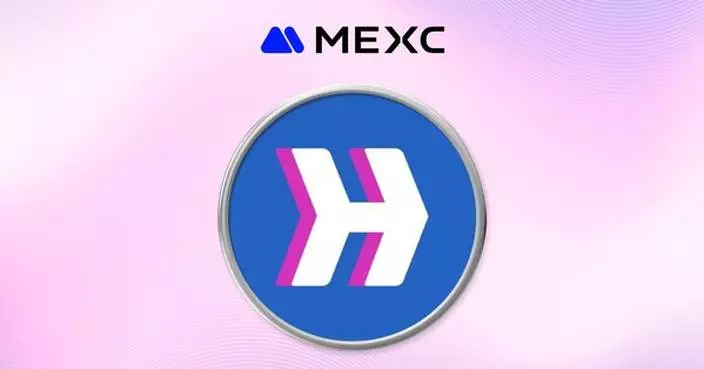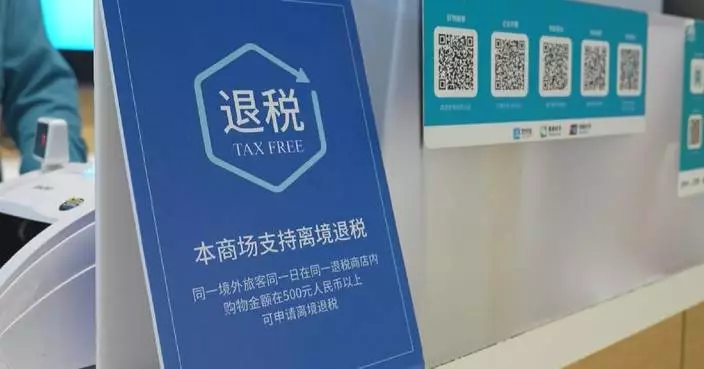Digital Policy Office releases Hong Kong Generative Artificial Intelligence Technical and Application Guideline
The Digital Policy Office (DPO) released today (April 15) the Hong Kong Generative Artificial Intelligence Technical and Application Guideline (the Guideline).
The Guideline aims to provide practical operational guidance for technology developers, service providers, and users in the application of generative artificial intelligence (AI) technology. The Guideline covers the scope and limitations of applications, potential risks and governance principles of generative AI technology, including technical risks such as data leakage, model bias, and errors that need to be addressed.
The DPO commissioned the Hong Kong Generative AI Research and Development Center (HKGAI) earlier to study and suggest appropriate codes and guidelines on the accuracy, responsibility and information security in generative AI technologies and practices, based on practical applications and the feedback collected from the industry. Having considered the research findings and recommendations, the DPO promulgated the Guideline. The primary objective of the Guideline is to balance AI innovation, application and responsibility, thereby constructing a governance framework with local characteristics that is suitable for the Hong Kong context for all stakeholders in the AI ecosystem.
In his speech at the Forum on Large AI Models of the World Internet Conference Asia-Pacific Summit this morning, the Commissioner for Digital Policy, Mr Tony Wong, said, "The Government hopes that the Guideline can facilitate the industry and the public in developing and applying generative AI technology in a safe and responsible manner, while encouraging innovative applications of AI, mitigating risks, and fostering the widespread adoption of generative AI in Hong Kong."
The DPO will continue to monitor the latest technological and application developments in generative AI, while maintaining close collaboration with HKGAI, relevant academic institutions and industry groups. The office will regularly update the Guideline for reference by all sectors.
Established in 2023 with funding from the AIR@InnoHK, which focuses on AI and robotics technology, the HKGAI focuses on the research and development (R&D) of generative AI technology, including constructing large language models and developing diverse applications. The large language models are tailored to Hong Kong's local culture, language environment, and security. Based on practical application experience, the HKGAI systematically summarises practical insights from the R&D process and makes recommendations on the accuracy, accountability, and information security of generative AI technologies and practices. Mr Wong expressed his gratitude to the HKGAI team for their professional research and contributions to the formulation of the Guideline.
The full text of the Guideline has been published on the DPO website:www.digitalpolicy.gov.hk/en/our_work/data_governance/policies_standards/ethical_ai_framework/.
Acting SFST's speech at Earth Forum 2025
Following is the speech by the Acting Secretary for Financial Services and the Treasury, Mr Joseph Chan, at the Earth Forum 2025 today (April 22):
Plato (Chairperson of Friends of the Earth (HK), Mr Plato Yip), King (Executive Director of the Financial Services Development Council (FSDC), Dr King Au), Dr Leng (Board Member of the International Sustainability Standards Board of the IFRS Foundation, Dr Bing Leng), Dr Guo (Chairman of the China Sustainable Investment Forum (China SIF), Dr Guo Peiyuan), distinguished guests, ladies and gentlemen,
Good afternoon. It is my great honour and pleasure to join you today at the Earth Forum 2025, a gathering of visionaries committed to shaping a sustainable future. First of all, I would like to express my gratitude to Friends of the Earth, FSDC and China SIF for organising this pivotal event and to all of you for your unwavering dedication to advancing green finance.
As Asia's leading international financial centre, Hong Kong has also become Asia's premier hub for green and sustainable finance. To align with the target of achieving carbon neutrality by 2050, Hong Kong has made significant commitments of its own. These targets are not merely aspirational; they are driving systemic reforms across various sectors, including energy, transportation, and finance.
In 2024, the total green and sustainable debts issued in Hong Kong exceeded US$84 billion, among which the volume of green and sustainable bonds arranged in Hong Kong amounted to around US$43 billion, ranking first in the Asian market for seven consecutive years since 2018 and capturing around 45 per cent of the regional total. This accomplishment solidifies our position as the region's premier platform for scaling climate-positive investments and also underscores our dedication to fostering a robust green finance ecosystem.
Hong Kong's status as a strategic nexus for green finance in Asia is central to advancing global sustainability objectives. As of the end of December last year, there are more than 220 ESG (environmental, social and governance) funds in Hong Kong authorised by our regulator, with assets under management (AUM) of around HK$1.2 trillion. This represents a remarkable increase of 136 per cent in the number of funds and a 15 per cent rise in AUM from just three years ago. These elements will solidify Hong Kong's role as the gateway to sustainable finance in Asia.
As an international financial centre, Hong Kong is uniquely positioned to mobilise the necessary capital for climate solutions while ensuring robust integrity within our financial markets. Hong Kong's multifaceted approach encompasses policy frameworks, market infrastructure, innovation ecosystems, and cross-border collaboration. Our Government Sustainable Bond Programme stands as a testament to this transformation. Having raised HK$220 billion since 2019, including the groundbreaking tokenised bond charge, we're not just starting green projects but creating new benchmarks for the market in different currencies and across different tenors. The recent expansion of the programme to include sustainable projects reflects our commitment to financing a broader range of climate solutions.
As we navigate the complexities of climate change and strive for a sustainable future, transparency and robust governance remain fundamental to our approach. In December 2024, we launched a roadmap on sustainability disclosure in Hong Kong. The roadmap sets out Hong Kong's approach to require publicly accountable entities (PAEs) to adopt the ISSB Standards (International Financial Reporting Standards - Sustainability Disclosure Standards). Assuming the role of the sustainability reporting standard setter in Hong Kong, the Hong Kong Institute of Certified Public Accountants (HKICPA) published in December 2024 following a public consultation the Hong Kong Sustainability Disclosure Standards (Hong Kong Standards) fully aligned with the ISSB Standards, with an effective date of August 1, 2025. All these ensure our regulatory framework remains aligned with international best practices while addressing the specific needs of the evolving markets.
Our regulatory framework is fundamental to creating a robust and dynamic sustainable finance ecosystem. By establishing clear guidelines and standards, we can ensure that all stakeholders are aligned in their efforts towards sustainability. The Hong Kong Monetary Authority (HKMA) published the Hong Kong Taxonomy for Sustainable Finance in May 2024, aligns with the two mainstream taxonomies of the Mainland and the European Union (EU), and currently encompasses 12 economic activities under four sectors, namely power generation, transportation, construction, and water and waste management. It serves as a pivotal tool to raise awareness about green finance, promote common understanding of green activities, facilitate green finance flows, and provide a foundation for further applications. In its Phase 2 development, the Taxonomy will introduce transition activities and add new green activities to make it more usable and support the transition of the region.
We recognise that developing green finance talent is vital for sustaining our leadership position. Our Pilot Green and Sustainable Finance Capacity Building Support Scheme has successfully approved over 6 400 applications with a total amount of reimbursement of about HK$35.8 million. As mentioned in the 2025-2026 Budget, we will extend the scheme to 2028 to continuously support local green finance talent training.
Our progress reflects the Government's commitment to not only human capital development but also technological innovation. The Green and Sustainable Fintech Proof-of-Concept Funding Support Scheme, launched by the Government in June last year, aims to nurture an advanced green fintech ecosystem by providing vital support for innovative projects. The Scheme facilitates the commercialisation of the solutions and the completion of the proof-of-concept stage, enabling wider adoption of green and sustainable fintech solutions with potential in the business landscape of Hong Kong. A total of 39 applicants involving 60 projects were approved, with a grant of HK$150,000 for each project. These initiatives are building the expertise required to sustain Hong Kong's leadership in sustainable finance.
Ladies and gentlemen, the transition to a sustainable future is both our greatest challenge and our most exciting opportunity. Hong Kong stands ready to play its part - as a financial hub, as an innovator and, most importantly, as your partner in this vital work. Looking ahead, we will leverage Hong Kong's unique position as an international financial centre to connect capital with climate solutions. This strategic role positions Hong Kong to make significant contributions to global climate action through financial innovation.
I look forward to today's constructive dialogue and to our continued collaboration in translating these strategic initiatives into tangible outcomes that advance Hong Kong's sustainable finance leadership. Let us work together to build a sustainable future.
Thank you.
















































